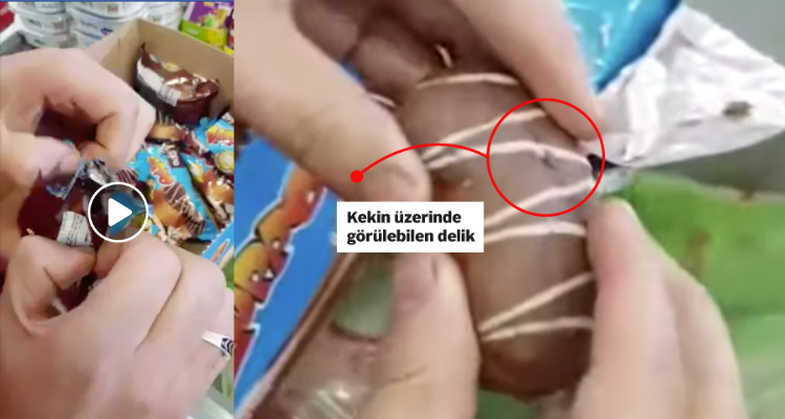
In the inscription attached to a video - which has gone viral to Mexico and the US - the investigative show "Stop" raises the alarm over the Luppo cake. As you can see, inside the coco nut there are two grains, which are alleged to cause celebratory paralysis in children and adults. But how does the truth stand?
View this post on Instagram
?Behold! This packaged cake is dangerous! It is produced in Turkey and exported to the US and Israel. Inside each cake are grains that cause paralysis. Don't eat them, ?the video went viral.
In fact, it is unclear exactly what the grains are and how they were put inside the cake, however, the data shows that it is fake news.
The version of the Luppo coconut cake is sold only in Iraq, not in the US and Israel, as the video showed on the network's lap. Documents provided by Snopes say the company has followed all steps necessary for the production process, taken safeguards, which means the presence of grains is untrue.
The Turkish website Teyit conducted a thorough investigation of the video, tracing its spread. Teyit concluded that the footage was filmed in the Kurdistan region of northern Iraq. The language used in the video is Sorani, a language of courses, while the frozen chicken brand (Like Pilic) is a widespread brand in that region.
A spokesman for Sölen, the Turkish company that makes the Luppo cake with coconut, confirmed that the product is only sold in Iraq. Journalists told Teyit it could be an attempt to tarnish popular Turkish brands as part of the ongoing Kurdisan-Turkey tensions.
Teyit noted that at the top of the cake there are signs indicating that it was previously interfered with. Although not a definitive test, it is likely that someone opened it, packed the grains and then repackaged the product.
Sölen called the video a fraud, without ground, and said he would take legal action against those responsible. Likewise, the company noted that cream and chocolate filtration systems during cake filling block any particle that is greater than 700 microns (0.7 millimeters) in height and width. Which means that the placement of grains inside the cake must have been done by human hands. At this point, Sölen said that the production process is automatic, so they are not affected by humans.
The National Food Authority of Albania carried out the checks and stated that the Luppo cake with coconut nut was not imported to Albania, while the other products of the company in question found appropriate hygienic-sanitary conditions.





